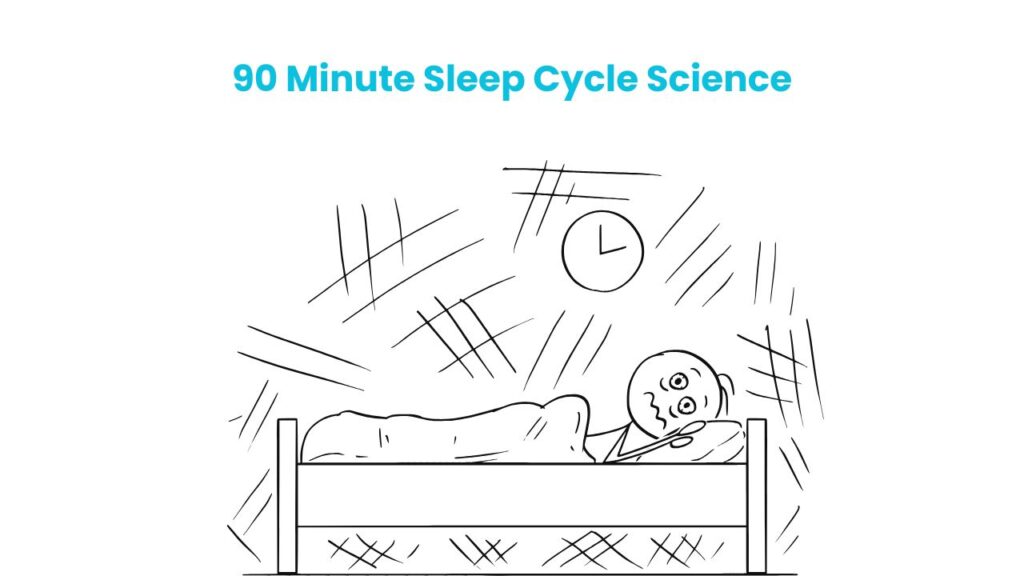90 Minute Sleep Cycle. Do you ever wake up after a long night’s sleep and still feel tired? The problem might not be how long you sleep it’s when you wake up.
The human body sleeps in cycles, and the sweet spot for waking up is usually at the end of a cycle, not in the middle. The average cycle is about 90 minutes long. In this guide, you’ll learn how the 90‑minute rule works, why it matters, and how to use it to wake up feeling fresh.
What is a Sleep Cycle?
A sleep cycle is the journey your brain and body take while you sleep. Each 90‑minute cycle has these stages:
- Light Sleep – your body starts to relax.
- Deep Sleep – your muscles recover, and your brain rests.
- REM Sleep – you dream and your mind processes memories.
You go through 4–6 cycles each night. Waking up in deep sleep can make you groggy, even if you’ve slept for many hours.
Why 90 Minutes Is the Magic Number
- Waking at the end of a cycle means your brain is already close to waking naturally.
- You feel more alert, focused, and energetic.
- It can help reduce “sleep inertia” — that heavy, slow feeling after waking.
How to Find Your Best Bedtime
Instead of just picking a random bedtime, count backwards from your wake‑up time in 90‑minute blocks.
Example: If you need to wake up at 6:30 am, try falling asleep at:
- 9:00 pm (6 cycles)
- 10:30 pm (5 cycles)
- 12:00 midnight (4 cycles)
💡 Pro Tip: It usually takes 10–20 minutes to fall asleep. Include that in your calculation.
Easy Way to Calculate
Counting cycles in your head can be tricky. The quick solution? Use our Sleep Calculator to instantly find your ideal bedtime or best wake‑up time based on the 90‑minute rule. No guesswork, just clear results.
Benefits of Following the 90 Minute Rule

- More Energy – Start your day feeling ready to go.
- Better Mood – Less grogginess means fewer grumpy mornings.
- Sharper Focus – Your brain works better when it wakes up naturally.
- Health Boost – Good sleep supports your immune system.
Quick Tips for Better Sleep
- Keep your bedroom dark, quiet, and cool.
- Avoid caffeine at least 6 hours before bed.
- Put away screens 30 minutes before sleeping.
- Stick to a consistent sleep schedule even on weekends.
FAQ
Q: Can I nap using the 90‑minute rule?
Yes! A short 20‑minute nap boosts alertness, while a 90‑minute nap lets you finish a full cycle.
Q: What if I wake up before my alarm?
If you’re close to your wake‑up time and feel alert, get up — your body is telling you it’s ready.
Pingback: Best Time to Wake Up Using Sleep Cycles -